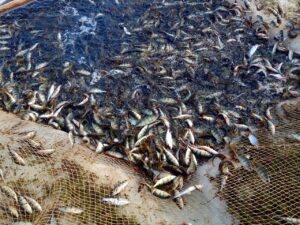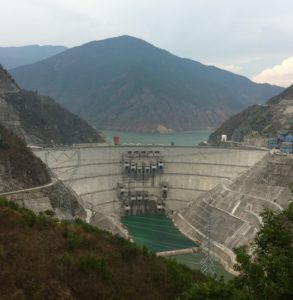Featured News
A Climate Security Plan for America
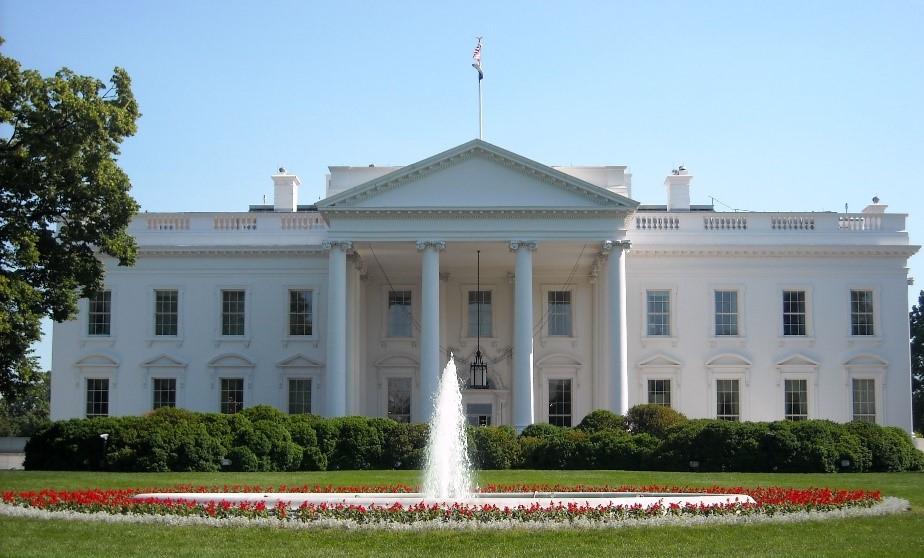
2020 was a year of record-setting climate events. From destructive wildfires to an unusually active hurricane season, such events pose a direct threat to communities across the globe and devastate the natural environment.
In the face of climate security threats, President Biden has put climate policy at the center of his new administration. The appointment of John Kerry as international climate envoy and Gina McCarthy as national climate advisor demonstrate this intent, and every cabinet position has a part to play in reducing emissions and building resilience to the climate impacts we are already facing. Following the recently announced Executive Order to tackle the climate crisis both at home and broad, ensuring that such actions are integrated across different agencies is critical for building a whole-of-government approach. The newly announced National Intelligence Estimate on the security implications of climate change is a welcome step, the finding of which can be integrated into the work of all agencies.
Domestically, the Biden administration is seeking to deliver a transition to a net zero carbon economy and work to build resilience for U.S. infrastructure—homes, public infrastructure, businesses, and military installations—in the face of the climate emergency. The need to build U.S. resilience to climate change is made all the more urgent by intensifying wildfires and hurricanes, which have severely impacted local economies.
Responding to climate security threats also entails strategic cooperation with the U.S.’s international partners and allies. While an essential first step, rejoining the Paris Agreement should be accompanied by renewed financial investment, supported by integrated assessments, to better coordinate policy action. President Biden announced plans to host an international climate meeting on Earth day in April to help prepare for the delayed UN Climate Change Conference (COP26) in November 2021. In the lead up to COP26, the U.S. needs to update its nationally determined contribution and provide assistance to developing nations to do the same. Further it is important that the U.S. lead in transparency and demonstrate how countries can meet their climate commitments. This is essential as nations work together to ensure targets set out under the Paris Agreement are met.
Concerns Over Wildlife Supply Chains Spur Changing Attitudes in China
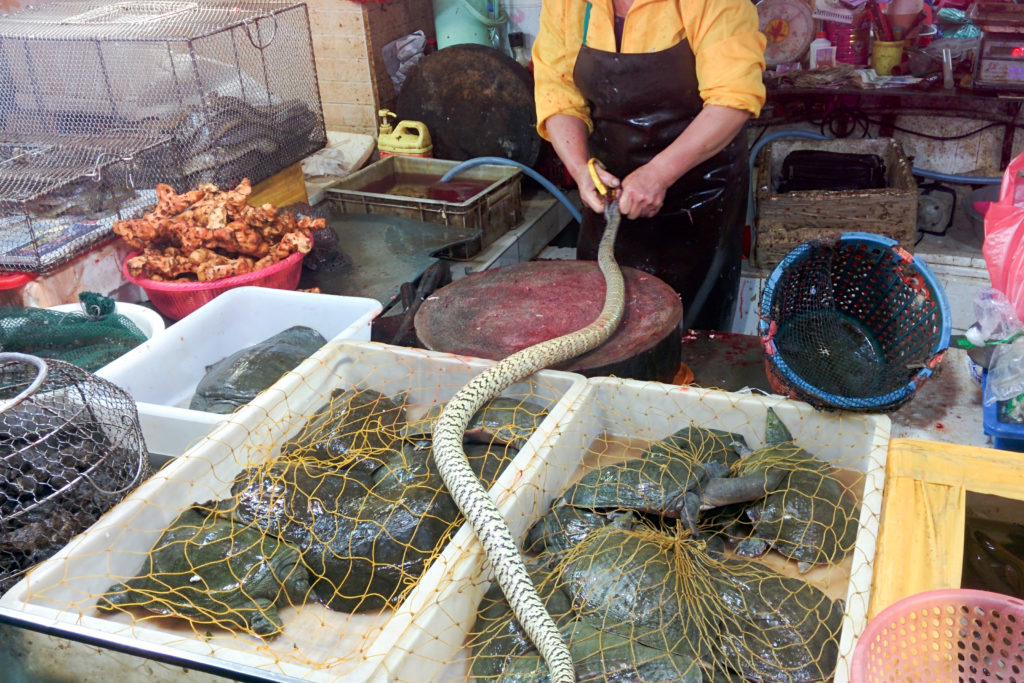
New data suggests that the outbreak of COVID-19 and its aftermath have shifted Chinese public opinion towards widespread support of the wildlife consumption ban enacted in February 2020, as well as support for stricter controls to protect wildlife.
Progress can be seen elsewhere. Several months ago, China granted pangolins the highest level of protection status, unthinkable just a year ago when lobbying efforts by NGOs were immediately shot down by the government. In urban and some rural areas where wildlife consumption is more common, an increasing number of pictures and slogans can be seen calling for an end to wildlife consumption as a public health measure. Recent research points to higher concentrations of zoonotic diseases in animals as they move through the wildlife supply chain from the wild to markets and places of consumption. This, combined with the inevitable contact humans have with animals in the wildlife supply chain, magnifies the possibility of a zoonotic disease outbreak.
China’s wildlife consumption ban raised concerns that the practice would merely be driven underground. However, the main factor in ending wildlife consumption may not be changes in official policy, but in the demonstrated changes in public opinion.
WTO Fishing Subsidy Negotiations Restart After Countries Failed to Reach Agreements in 2020
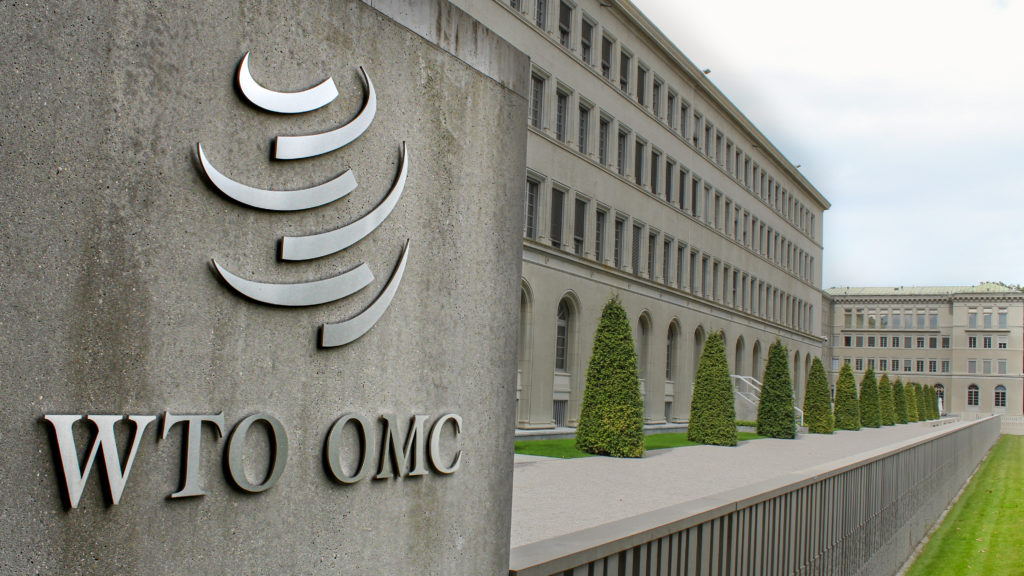
The WTO started a new round of negotiations on curbing harmful fishing subsidies on January 18th after failing to reach an agreement by the end of 2020. The United Nations Sustainable Development Goal 14 calls for the elimination of harmful fishing subsidies to alleviate strains on degraded global fish stocks and the WTO’s negotiations have significant support from experts worldwide, but disagreements on special and different treatment for developing countries and defining beneficial versus harmful subsidies have previously proved to be major sticking points.
In July, the Chinese envoy to the negotiations indicated a willingness to “engage fully” and negotiate a decrease of subsidies for fishing fleets, but made it clear that China still expects special and different treatment as a developing country despite being the world’s largest provider of subsidies and having the largest distant water fishing fleet. In 2018, China allocated $7.2 billion to fishing subsidies, of which $5.8 billion is considered harmful. The EU, second globally as a provider of fishing subsidies to its fleet and proponent of “beneficial” subsidies in the WTO negotiations, introduced in December a new $7.2 billion budget for the European Maritime, Fisheries, and Aquaculture Fund (EMFAF) which some NGOs and WTO delegates criticized as containing harmful subsidies.
Despite the remaining conflicts and that an agreement was not reached by the original deadline, experts are optimistic that an agreement will be reached this year, pointing to great strides made last year in negotiations and hopes of more constructive involvement by representatives of the new Biden administration.
In Case You Missed It
Ending Wildlife Crime and Preventing the Next Pandemic
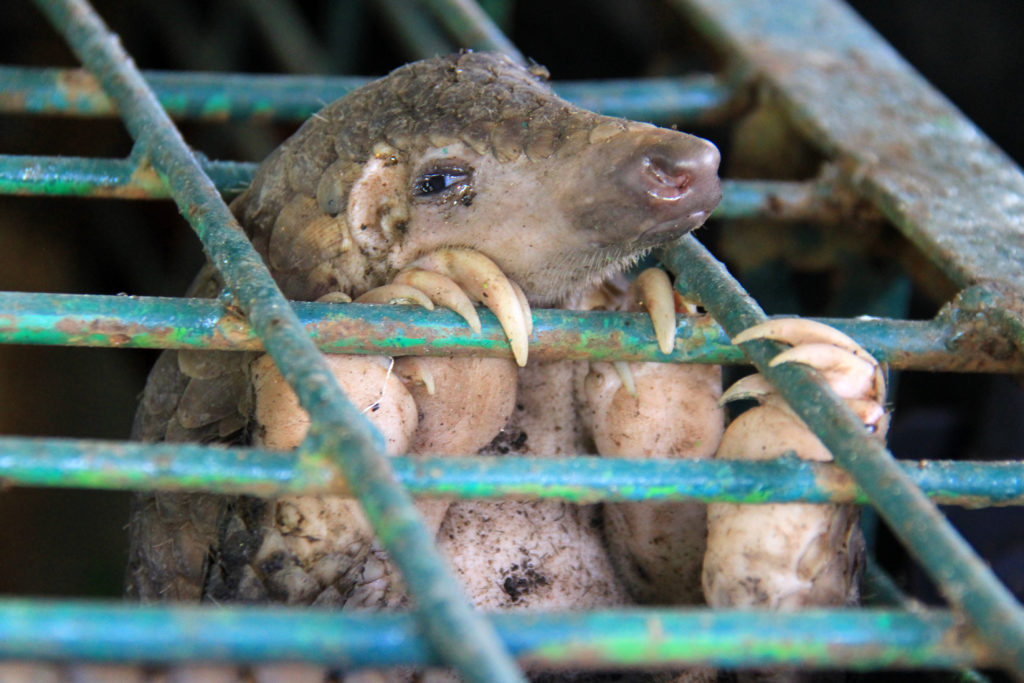
On January 25, the Stimson Center, in collaboration with the ICCF Group, hosted a discussion on “Combatting Wildlife Crime and Reducing the Transmission of Zoonotic Diseases.” In response to the devastating impact of wildlife trafficking and risk posed by zoonotic diseases on health, economies and national security, the Global Initiative to End Wildlife Crime was created to encourage States to fill gaps in international law by progressing two related reforms: 1) the first global agreement to treat wildlife crime as a serious international offense through the adoption of a fourth Protocol under the UN Convention Against Transnational Organised Crime; and 2) amending CITES to incorporate public and animal health criteria into its decision making. As the Biden Administration takes office, Senator Chris Coons, U.S. government officials, legal and scientific experts discussed opportunities and challenges associated with these reforms, and how they could work in practice. Watch the event recording here.
Overfishing threatens Congolese Shark Populations and Livelihoods
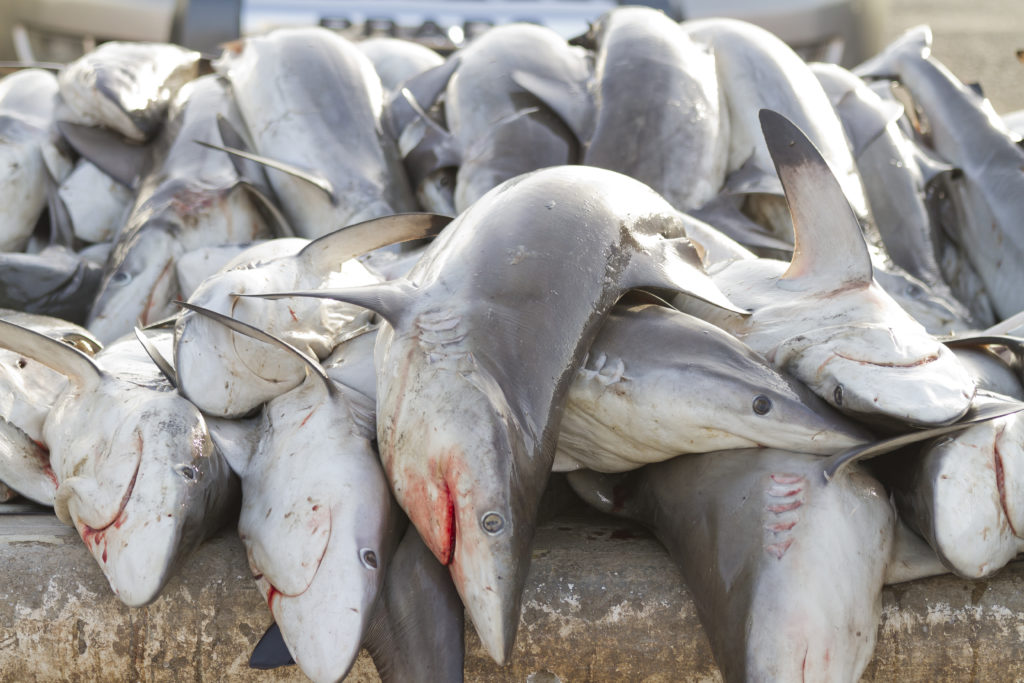
In the Republic of the Congo, the ongoing shark trade is putting increasing pressure on coastal shark populations that are being depleted at unsustainable rates, and economic livelihoods. Shark meat is an important, affordable source of protein for many Congolese. However, the shark fins are illegally smuggled to Asia, where they can fetch 10 times as much as shark meat on the market. Foreign industrial trawlers are decimating shark populations and undercutting local Congolese fishermen and women by supplying up to 90% of the supply in local markets.
Japan’s new IUU law marks a Victory for Global Advocates of Seafood traceability

On December 4, Japan’s National Assembly passed a law that will ban the importation of illegal, unreported, and unregulated (IUU) seafood. The law will establish reporting and recordkeeping requirements for imported seafood, and will be implemented over the next two years. With the new law, Japan will join the U.S. and EU in having seafood import regimes aimed to prevent IUU catch from entering their markets, and all three will comprise 50 to 60 percent of the global seafood market.
Mekong Basin Water Levels drop as Upstream Chinese Dam fills its Reservoir
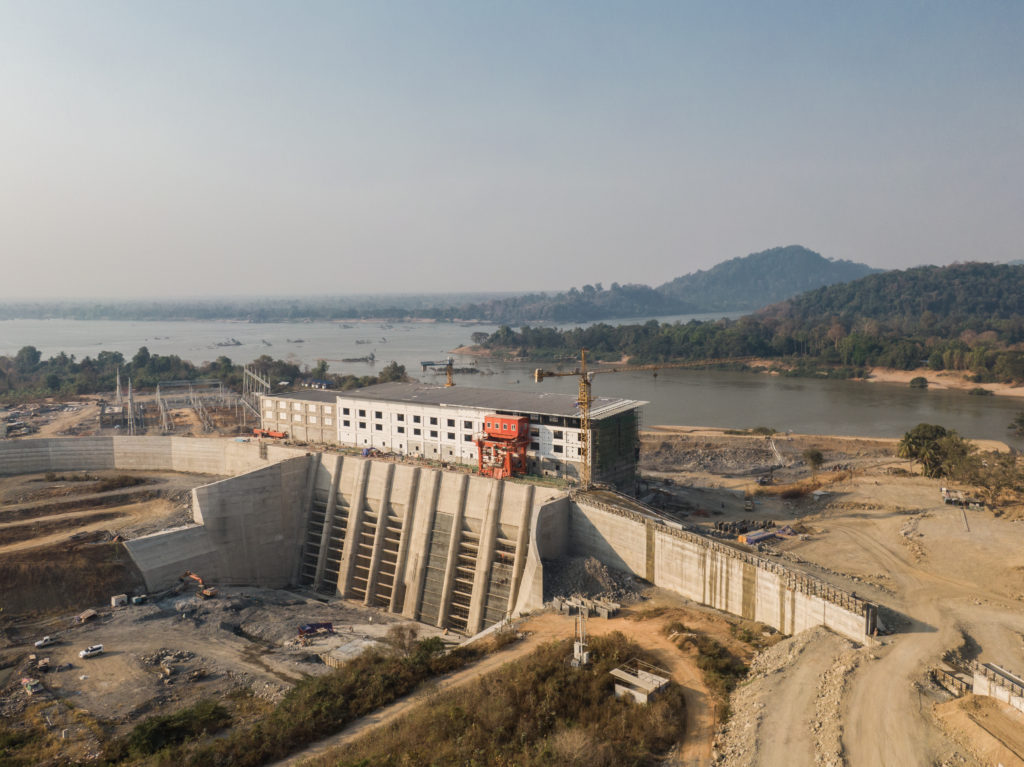
The Stimson Center’s Mekong Dam Monitor confirmed anecdotal reports in parts of Thailand that water levels dropped by about three feet at the beginning of January, following activity at the Chinese Jinghong Dam starting on December 31. The Thai government and the Mekong River Commission (MRC), a coordinating body whose members include Thailand, Laos, Cambodia, and Vietnam, reportedly received notification from China of Jinghong Dam activity five days after it began. This latest controversy to highlight the hydropolitics of the Mekong region may cast doubt on Beijing’s pledge late last year to share data with the MRC to better coordinate across the region.
Palau detained Chinese Fishing Vessel alleged to be harvesting Sea Cucumber Illegally
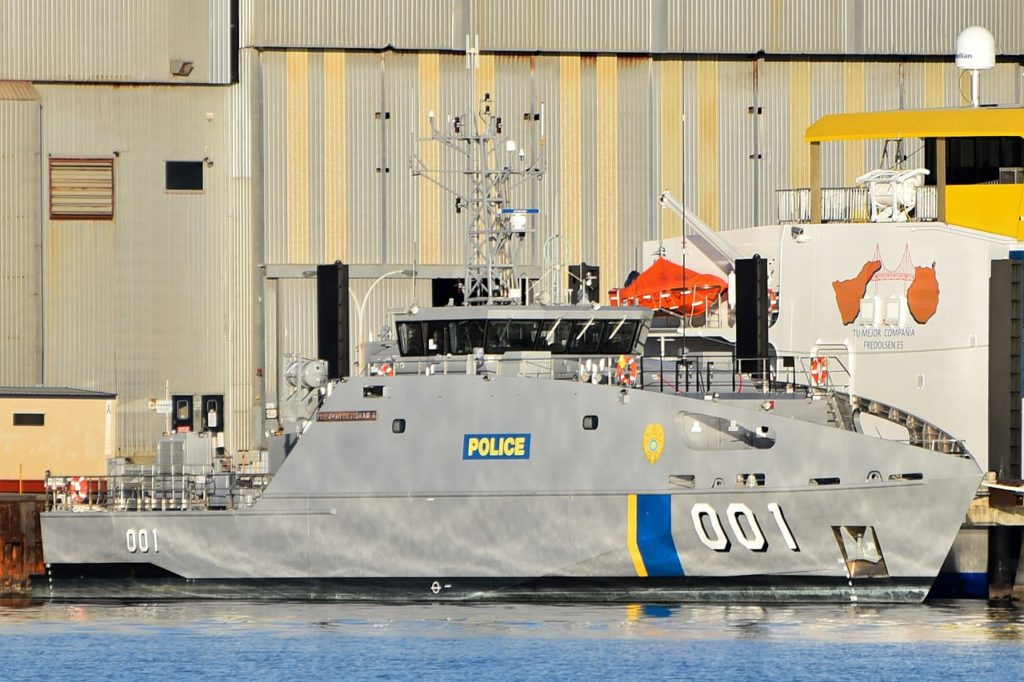
Palauan authorities and the United States Coast Guard (USCG) successfully detained a Chinese fishing vessel and 28 Chinese nationals suspected of harvesting sea cucumber illegally in Palauan waters. The U.S. has a security compact with Palau and has expanded its presence in the archipelago, in part to assist in patrolling Palau’s waters. Palau released the ship crew without charge, but they banned them from returning to Palauan waters and confiscated their catch of 500 pounds of sea cucumber, fishing equipment, and $20,000 that was offered to authorities as a bribe upon capture.


